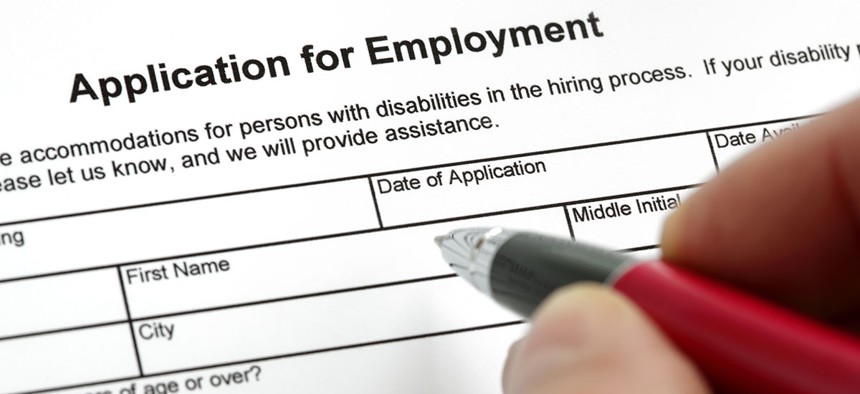Smart Employers Don’t Let Job Applications Disappear Into a Black Hole

Brian A Jackson/Shutterstock.com
Companies that don’t notify applicants risk damaging their reputation.
Harrison Priest estimates he’s applied to about 200 jobs since graduating from Skidmore College two years ago. He’s gotten replies from about 10, he says.
“It gets so you don’t expect it,” said Priest, who finally found a job working at an Apple Store this summer. “It’s almost a bit of a treat if you do hear back.”
Not that long ago, unsuccessful applicants could count on getting a rejection notice in the mail. Often just a form letter, it was a small courtesy that gave job seekers a measure of closure. With the advent of online job listings, however, that analog practice has gone the way of record stores and travel agents. Applicants now may get an automated email telling them their applications was received, but for most job seekers, that’s the last they’ll hear from a company. Even candidates who receive interviews may be left twisting in the wind.
That’s a mistake, says Kathryn Minshew, CEO of The Muse, a career site that caters to millennials. Companies that don’t notify applicants aren’t just being disrespectful, they risk damaging their reputation. Frustrated applicants might share negative experiences with friends, colleagues, and on online forums such as Glassdoor, Minshew says.
Failing to reply to candidates is also short-sighted, Minshew believes, as applicants who receive a response are more likely to reapply. “Some of the people who aren’t right for you today are the candidates you want to hire tomorrow, or in six months, or in five years,” she says. They may also wind up working for customers, competitors, and vendors.
The Muse tries “to make sure that when we have to turn someone down, it’s done respectfully, done in a way that’s human,” Minshew says. “Are we perfect at this? Absolutely not. I found out there was a candidate who hadn’t heard for weeks, because someone dropped the ball.”
Allegra Harpootlian, 23, spent six months applying to jobs in Washington, rarely getting a response. For jobs where she felt she was a good fit, it was particularly disheartening. “It feeds an insecurity, the sense of, ‘But why didn’t they want me?'” she says. “Applying for a job is worse than dating, in so many ways.”
For a position at one PR firm, which she declined to identify, she went to three on-site interviews, never hearing back. Only after sending four emails did she receive word she wasn’t successful. The experience told her that if she’s ever in a position to hire a PR firm, she’ll avoid that one. “Your whole job is client based. If you can’t respect people’s time , I wouldn’t trust them to do my work for me.”
The most common excuse for employers is the sheer volume of applications companies receive. Online job listings reach far more people than traditional print ads, and, combined with the ease of electronic applications, companies are now inundated. Johnson & Johnson receives 1 million resumes a year, and while smaller companies receive less, they also have fewer resources to write responses.
Zinc, a 25-employee Silicon Valley start-up that develops messaging apps, gets about 10 or 20 applications a week. CEO Stacey Epstein says she would respond to them all if she could, but simply doesn’t have the capacity. Applications that come from a recruiter or a referral are more likely to get a response, she says. “I probably have hundreds of people in our system who have applied for jobs and haven’t had a response, and probably never will,” Epstein says. “If you’re waiting to hear back, it’s like that movie, He’s Just Not That Into You. Don’t cry about it. Go network, go apply for more.”
Employers may also worry about getting sued from rejected applicants, or simply fear an angry response. Rachel Bitte, the head of HR at Jobvite, a recruitment company, has a word for those companies: “chickenshit.” Smart employers should not only find the time to notify applicants, but offer constructive criticism, Bitte believes. “Give them something that helps them improve,” Bitte says. “If you give them something you can’t do anything about, they’ll get angry and they’ll get on Glassdoor.”





